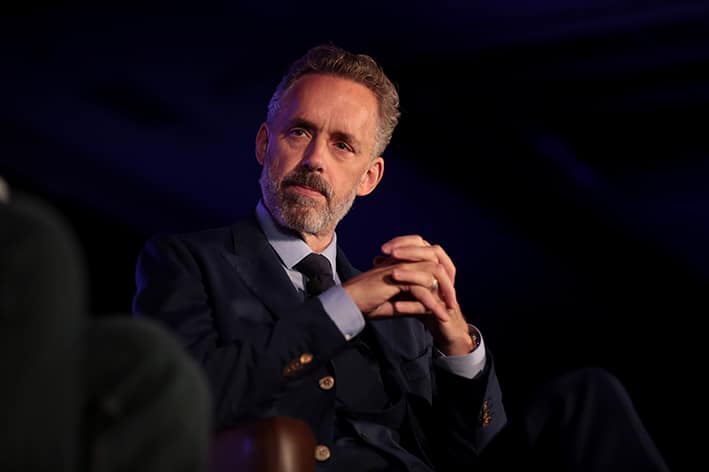
Canadian Professor Jordan Peterson was in Sydney last month and I was treated to a ticket to his show at the International Convention Centre by a good friend of mine.
I know he has his critics, but I quite like Peterson and I have immensely enjoyed each of the three occasions I have seen him live.
Each presentation is different, because Peterson’s style is to choose one or two of the “rules” out of his two bestsellers, 12 Rules for Life and 12 More Rules for Life and expand upon them from the stage. At times, it can seem like the audience is intruding in a very personal or even intimate moment because Peterson’s style is more like you are watching him try to mull over a particular problem in his head than as if he is delivering a lecture.
Apart from the list of rules themselves printed and taped to the floor, he uses no notes, no aide-memoires. It’s just Peterson and his thoughts. For all its quirkiness, it is actually quite engaging.
In the talk I attended, Peterson focused almost exclusively on a single rule: “Do not carelessly denigrate social institutions or creative achievement.”
While I am sure every one of the 9000 people in the Aware Super Theatre that night got something out of the talk, I am equally sure that I was the only one who couldn’t help but think that this talk would make for a great reflection on the Plenary Council.
Peterson’s whole talk was about trying to find the correct balance between maintaining the stability of a social institution and the creative renewal that every institution needs to purify it.
He explained that stable structures and creative renewal are each deep necessities and said that the human brain bifurcates (divides into two branches or forks) in the attempt to try to achieve it.
He said a proper balance needs to be struck but this can be particularly difficult because of our own ideological leanings and preferences.
On the one hand, Peterson said, those who seek creative renewal can tend towards denigrating the institution they are trying to renew and its structure – i.e, throwing the baby out with the bathwater. He said this was dangerous, because the stability of social institutions is a great contributor to sanity. Take away these institutions (family, faith, government) and you get chaos.
Take away these institutions (family, faith, government) and you get chaos.”
On the other hand, he explained, those who see the value in social institutions and seek to maintain them tend to view creative achievement and renewal as a threat to their stability. He warned against this as well, saying that the goal of renewal is actually to repair what is wrong within these institutions.
Either “camp” can get out of hand, he said, and argued that the right balance is found when you abandon ideology (conveniently, “abandon ideology” is another one of the “rules.”)
What does this have to do with the Plenary Council and the upcoming Synod on Synodality? Well, isn’t finding the right balance between maintaining a social institution (or divine institution, rather) and creatively renewing it in order to repair it exactly what we are trying to do?
And – if I can be so bold – isn’t the clinging to ideology on either ‘side’ one of the greatest obstacles to this process bearing fruit?
Think about those on “team maintenance” who see every proposal for change, even the smallest ones, as something which will weaken or undermine the necessary and divinely-instituted elements that give the Church its structure, stability and authority.
Then think about the approach of those on “team renewal” who cannot point to a single structural or even doctrinal element of the Church (apart from “Jesus loves you”) as something that cannot be changed, and who argue that everything should be up for grabs.
I’m not pointing fingers here. Heaven knows that the description of ‘team maintenance’ could be my LinkedIn profile. Rather I am trying to illustrate how the theories that Peterson was espousing became real to me that night.
Peterson didn’t criticise any one approach – maintenance or renewal – over the other.
He argued that each was trying to do what was best for the institution, but these needed to be cognisant of the perspective from which they were coming and warned everyone to not “carelessly denigrate” those coming from another starting point.
I think his words are probably not a bad reminder to all of us as we continue on the journey of synodality.
